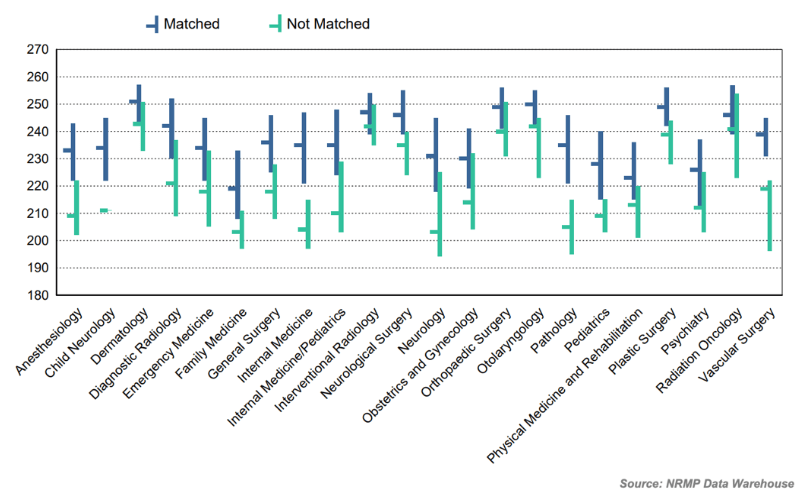How to Score 260 on USMLE Step 1

8735 Views
This blog was originally published on December 19, 2019 and may include some out-of-date information. Consider looking into some of our more recent blog posts:
Everything You Need to Know About the USMLE Step 1 Pass Rate
Your 10-Week USMLE Step 1 Study Schedule
Proven Study Strategies to Structure Your USMLE Step 1 Prep | UWorld & Elite Medical Prep Webinar
Free 6-Week USMLE Step 1 Study Schedule
Original blog post:
USMLE Step 1
The USMLE step 1 is an intimidating rite of passage for every American medical student. Preparing for the test can seem very daunting and anxiety provoking. My hope is that this blog post will answer common questions such as, how does step 1 affect my future career goals? What does it even mean to do well on step 1? And finally, how do I crush this test?
What is means to score well on Step 1
The passing score for USMLE step 1 is 194. However, the average step score for an allopathic medical student in 2018 who matched into their preferred specialty was 232.8. A good step score is anything greater than 240 which is the 66th percentile, placing you in the top third of medical students nationally. Between specialties, there was considerable variation in average step 1 scores. More competitive specialties such as dermatology, neurosurgery, and plastic surgery on average have higher Step 1 scores with an average around 250. (To find a complete guide of residency acceptance factors by specialty, you can check out our NRMP Match Series here.) Step scores also vary between programs, and a higher step score will increase your chance of getting into a higher ranked program. A good step score is only one aspect of your residency application, with the most important part being your performance on clinical rotations. However, some programs may use step scores as a way to screen applications when deciding who to interview, and a strong step score is an important part of having a competitive application.
How to do well on Step 1
As someone who scored a 260 (96th percentile), I truly believe that scoring well on step 1 is an achievable goal for any medical student. The secrets to doing well are preparation, organization, and dedication.
Preparation
Before your dedicated study time, prepare by gathering the key resources and question banks that you want to use. You should have no more than four total. I personally recommend First Aid, Pathoma, UWorld, and sketchy micro. Make sure that you have a place to study that is quiet and easy to focus in. Finally, I personally chose to study with a friend as we could hold each other accountable and go over practice tests together.
Organization
Next organize your study schedule by planning how many passes you want to make through the material. I personally did three. Make sure that you work in at least two full passes of UWorld. Use a calendar to create a schedule for your dedicated study time including some catch up days and at least one full day every other week for a practice test. Practice tests are a wonderful way to gauge your progress and allow you to adjust your study schedule. I would also recommend taking one full day off each week to recover. In addition to reviewing material, make sure that you have a strategy for how you are going to retain what you learn. I personally made an ANKI card for every UWorld of practice test question that I got wrong.
Dedication
One of the most challenging parts of studying can be sticking to your schedule and avoiding burnout. I suggest not getting too bogged down in any one subject and only taking the time you allowed yourself to review. There will always be more to learn, and you are never going to know everything. If you are short on time always prioritize doing questions over material review. Finally, each day make sure you do at least one thing you enjoy, I personally worked out and watched one episode of The Office every day.
In conclusion, doing well on the USMLE step 1 is an important part of creating a strong application for residency with the average student score a 232. With preparation, dedication, and organization it’s possible for all students to do well on Step 1. And, if you need help getting prepared, organized, or need someone to coach you through sticking to your schedule and avoiding burnout, you can always contact us here!
Featured Articles

